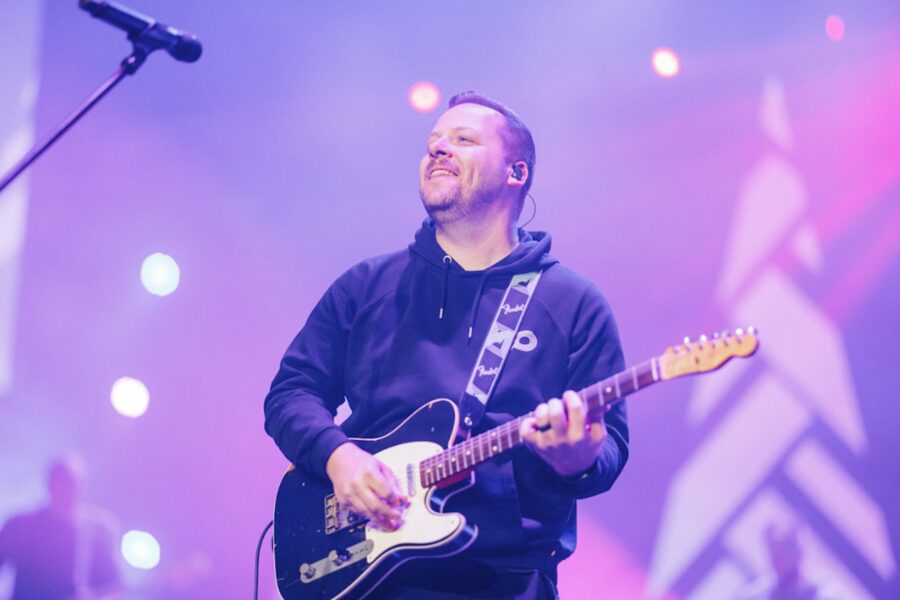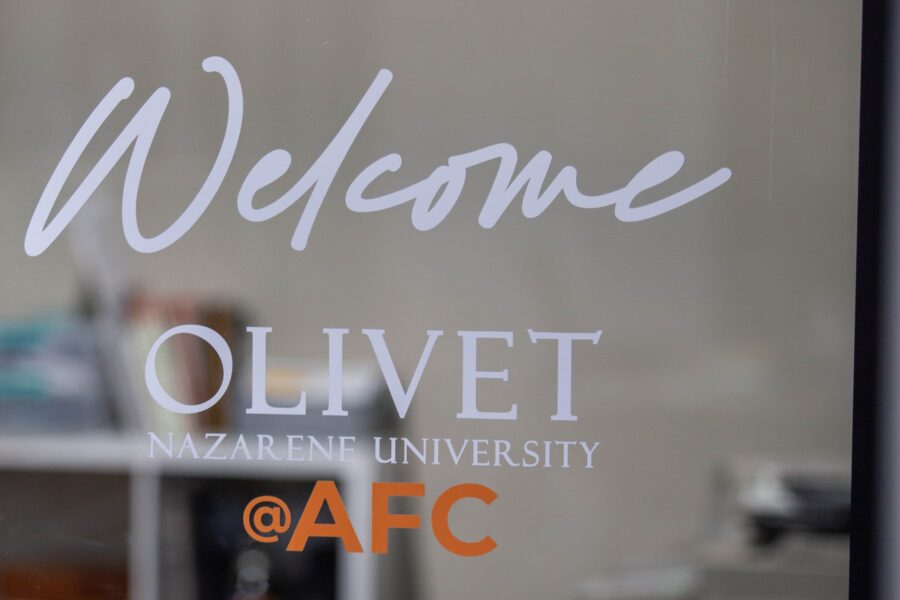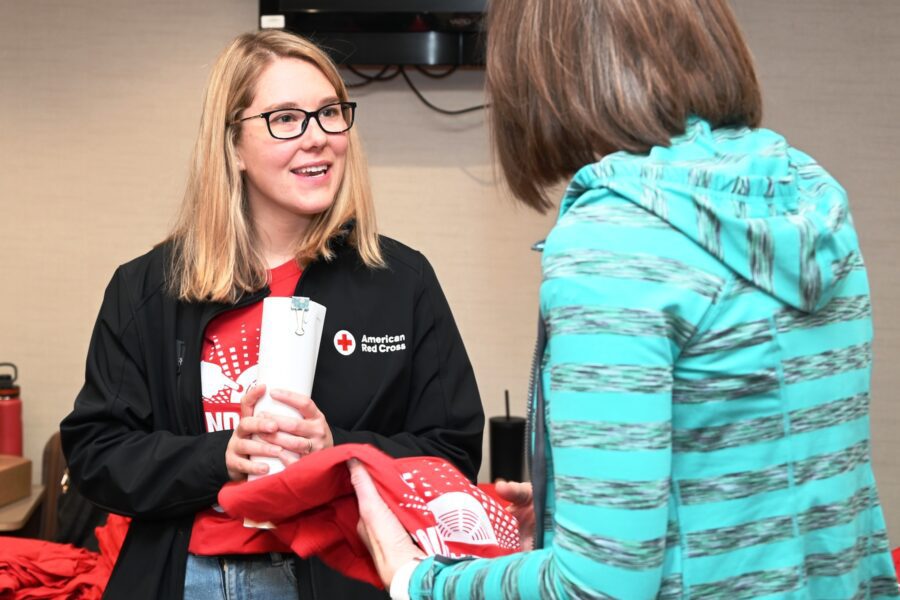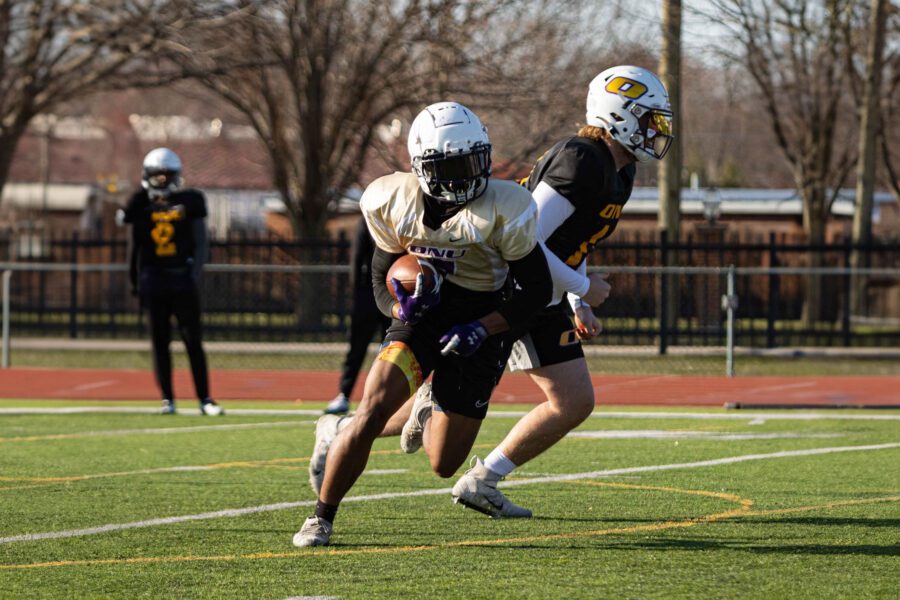
Honors and Athletics
Athletes Tyler Hall and Stephen Garth understand that the more often they frequent the practice field or the weight room, the higher the likelihood of seeing their performances on the field amplified. As juniors in college, they also know that the more they delve into topics of inquiry that stimulate their minds and shape their perspectives on the world, the more they will build a well-rounded foundation for high-impact careers, fueled by a vision to improve the lives of others.
Such is the mission of the Honors Program at Olivet Nazarene University. During the first two years of the program, students take four unique interdisciplinary courses which satisfy general education requirements and prompt students to question what it means to be human. The program is structured into grade-level cohorts to academically challenge students who represent a wide variety of academic disciplines and research interests.
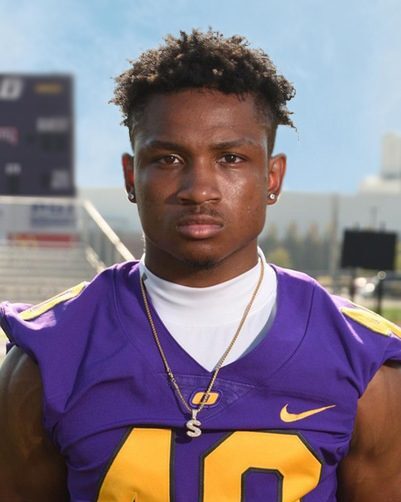
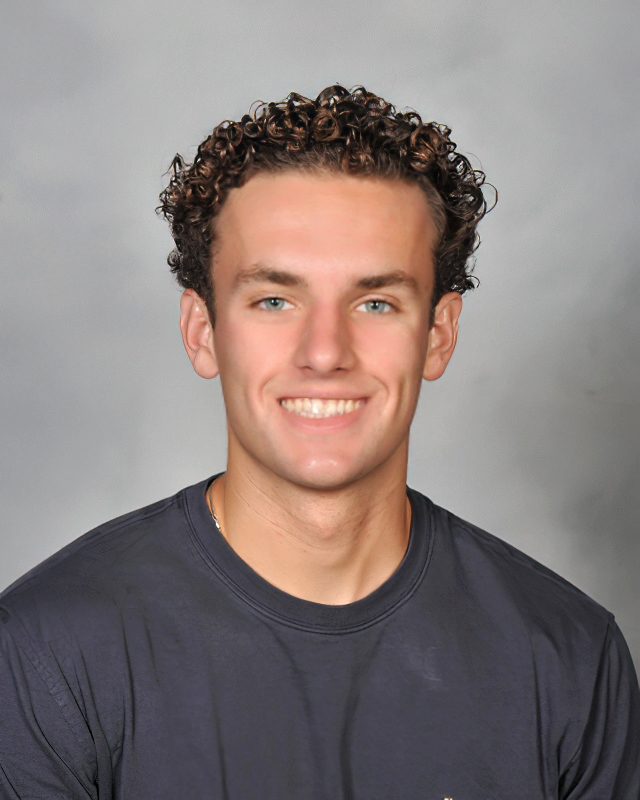
Both Tyler and Stephen were initially attracted to Olivet for its strong engineering program — which is consistently ranked in the annual U.S. News Best Colleges and Universities report and recognized by the Colleges of Distinction organization — as well as generous scholarship offers to play their respective sports. The opportunity to apply to the Honors Program proved to be an attractive bonus for both high-achieving men.
Tyler is pursuing a mechanical engineering degree with a minor in mathematics. He is the vice president for Olivet’s chapter of the American Society of Mechanical Engineers, plays on the reserve soccer team and serves as a teaching assistant in Reed Hall of Science. Stephen, who is seeking a degree in computer science engineering, has served as a mentor for freshmen, plays on the varsity football team and is actively involved in the campus intramural program. As if they were not busy enough, Tyler and Stephen both have jobs and find time to enjoy the many social activities offered on campus.
With those high levels of commitment, both men have had to learn to be very intentional with their time management, especially with the rigorous demands of the Honors Program.
“In Honors courses, we saw how far we can push ourselves,” Tyler reflects. “I spent a lot of time talking about theology and science with our professors. The experience was really formative: Those relationships taught me to stay engaged in something, even when it’s absolutely terrifying.”
Stephen says the classes’ unique approaches to learning made them highlights during his school week.
“My Honors classes were the ones that consistently had me thinking 24/7,” he says. “I always looked forward to Tuesdays and Thursdays. Sometimes we were outside looking at nature, other times we visited churches and, for one course, we regularly watched movies. I learned a lot of truth from those different activities and resulting discussions.”
Over the next two years, Tyler and Stephen will complete individual capstone projects, both under the guidance of Dr. Jonathan Weber, assistant professor in the Walker School of STEM. Dr. Weber completed his Ph.D. from the University of Nebraska-Lincoln in architectural engineering with a focus on acoustics, the study of mechanical waves.
Stephen is interested in studying how one particular application of technology intersects with mental health. He hopes to partner with research labs in Chicago to use brain computer interfaces (BCI) to observe how music impacts the brain, particularly through emotions. Using BCI devices, researchers can look at and measure brain waves and patterns.
“I always love the way music makes me feel,” Stephen says. “Depending on my mood before a football game, I might listen to upbeat music or more calm, controlled music. When I’m studying, I tend to listen to classical music. I am excited to explore more about how music and emotions are actually connected.”
Tyler, who has Type 1 diabetes, is focusing his project on the creation of a needleless glucose monitoring system. He hopes to find a practical application of existing research on magnetized microwave frequencies to create a prototype that might one day revolutionize the constant testing that he and millions of other Americans must do daily.
Their educational journeys, and those of their classmates, could eventually contribute to groundbreaking technological development. Although they recognize that the Honors Program curriculum has been challenging, both Stephen and Tyler also appreciate the many ways the program has expanded their capacities for advanced scholarship, their interests in personal development and their desires to learn within a supportive community during the first two years of their college experiences.
“Take the leap; take the risk,” Stephen says to those who consider applying to the program. “You will learn a little bit about the process and a lot about yourself and what you need to do to succeed.”
Tyler cautions, “Be careful. You might learn something. The worst thing that will happen is your life will be radically changed — in a good way.”
From Olivet The Magazine, A Need to Belong – Summer 2024. Read the full issue here.


